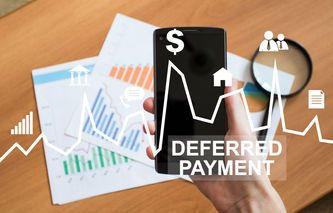Definition
The financial accounting term interest costs during construction refers to the financing charges incurred during the creation or acquisition of assets such as property, plant, and equipment. Companies can capitalize interest costs if they are material, otherwise they should be expensed.
Explanation
Generally, accountants have three choices with respect to interest charges during construction:
No Capitalization: the interest charges are considered the cost of financing, which is based on management's decision to use debt and not equity to finance the project.
Actual Transactions: this approach uses the cost of the actual financing transactions associated with the specific construction project. This approach is criticized since the actual cost of the asset will vary with the financing decision.
Imputed Costs: the construction project is charged with the company's calculated cost of funds, regardless of the actual mix of funding used for the specific project. This approach removes the variability of a financing decision, but ignores the true cost of the funds used.
In SFAS 34, the FASB stated the interest charges that could be capitalized are limited to those that would have been avoided if the asset were not constructed. Capitalization of interest charges is allowed if the impact on the company's financial statements is material versus expensing these costs.
Avoidable interest should be calculated as the interest expense times the weighted average costs in each period. Generally, the interest rate applied should be:
Specific Debt: if the company borrows money for the sole reason to finance the capital project, the portion of the weighted average cost that is less than or equal to the amount of the money borrowed should use the interest rate of these loans.
Non-Specific Debt: all other weighted average costs of the project should be assigned an avoidable interest cost that is the weighted average of all outstanding debt during that time period.
Four conditions need to be met before interest can be capitalized:
Expenditures must have started on the project.
The asset being constructed is for the company's use; it's not being constructed for resale.
Activities must occur to ready the asset for its intended use. That is to say, there should be continuous construction of the project. Interest costs during delays in construction should be excluded.
Actual financing costs must exist.
Capitalization of interest would stop once the asset is substantially complete, or placed into service.
Example
Company A is constructing a new service center. The total cost of construction is budgeted at $1.1 million and occurs over a six month timeframe. The costs include the initial purchase of the building for $500,000, and construction costs of $100,000 per month. Company A financed the purchase of the building with debt at 7.0%, while the remaining costs of the project were financed using Company A's existing debt structure at 5.0%.
The interest costs during construction would be calculated as:
Expenditure | Percentage of Year | Rate | Avoidable Interest |
500,000 | 6 months or 50% | 7.0% | 17,500 |
300,000 | 6 months or 50% | 5.0% | 7,500 |
Total | 25,000 | ||
Note: Expenditure is a weighted average during the construction timeline ($300,000), not the total ($600,000).






